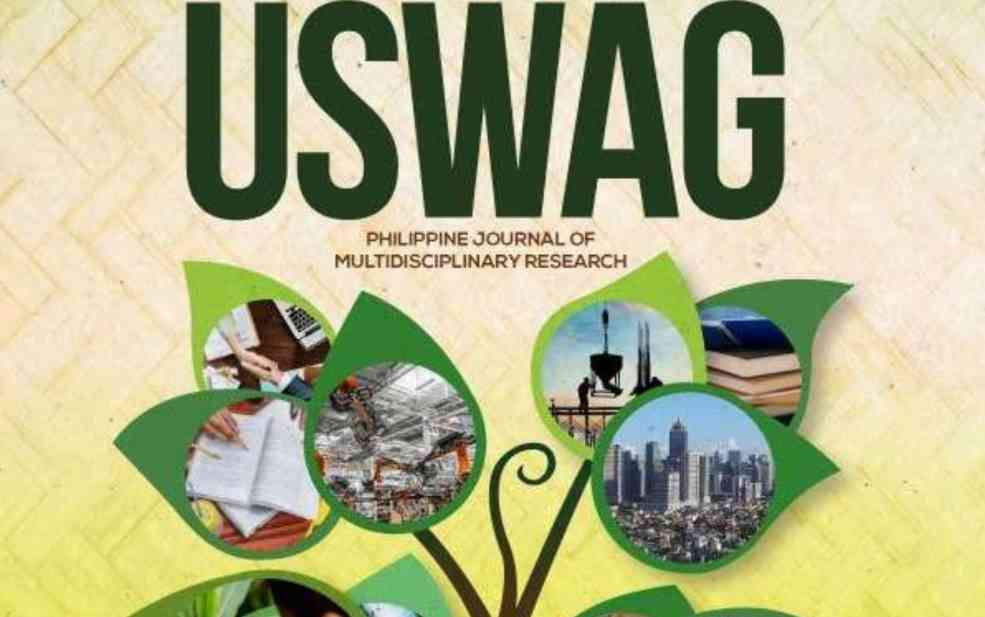
CatSU Research and Development Services has issued a special call for publication, inviting student researchers to submit their completed undergraduate and graduate theses or dissertations for the upcoming 2025 Special Issue of Uswag: Philippine Journal of Multidisciplinary Research. The issue, slated for release in January 2026, is open to CatSU students whose scholarly works demonstrate academic rigor and relevance across various disciplines. The initiative forms part of the university’s continuing efforts to promote a culture of research and academic publishing among its student community. Uswag Journal—with ISSN Online 2984-8954 and Print 2984-8946—is the official peer-reviewed research journal of CatSU. It publishes scientific and interdisciplinary studies with the potential to contribute to local, national, and global development. Reviewed by internal and external experts, the journal accepts submissions from fields in both the sciences and social sciences, particularly those that adopt innovative approaches and cross-disciplinary frameworks. Interested contributors are advised to visit catsu.edu.ph/uswag for submission guidelines, templates, and editorial policies. The deadline for manuscript submission is October 15, 2025.
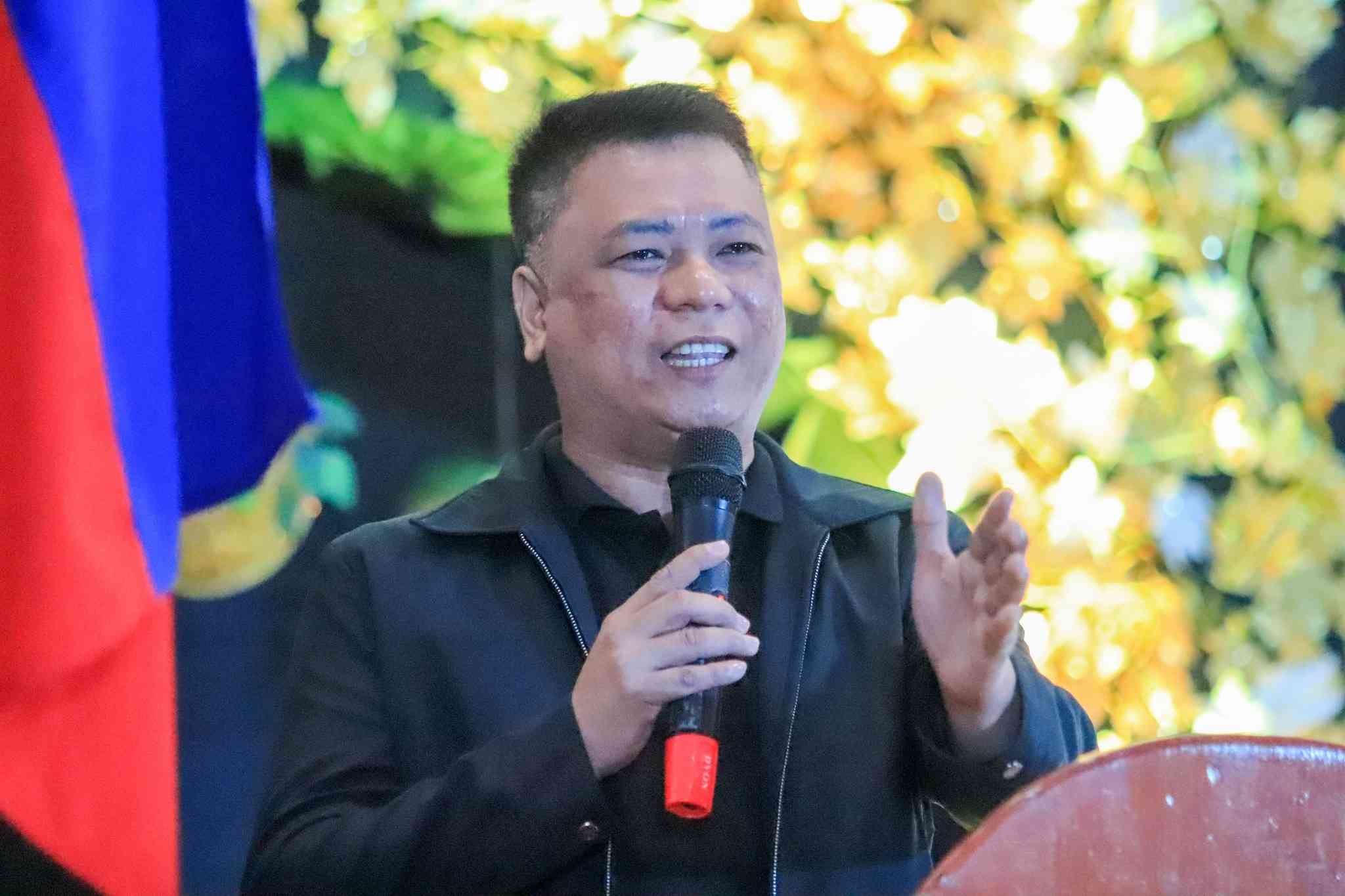
With its firm push to strengthen human capital in higher education, the Commission on Higher Education Regional Office V has reopened applications for the Scholarships for Staff and Instructors’ Knowledge Advancement Program or SIKAP — a flagship initiative that equips faculty and non-teaching staff of Higher Education Institutions (HEIs) with graduate-level credentials. Now coursed through the Sending HEI Nomination track, the program signals a renewed call for institutions to invest in their people. CHED RO V urges HEIs across Bicol to nominate deserving personnel who are ready to advance their expertise through postgraduate studies in CHED-recognized universities and colleges nationwide. SIKAP, long seen as a lifeline for many in the academe looking to upskill, covers key academic costs and living support, ensuring scholars can focus fully on their studies. CHED eyes this wave of applications as a critical step toward academic excellence, faculty development, and institutional resilience. Applications are open until September 8, 2025, with CHED reminding HEIs that the clock is ticking on a rare chance to strengthen their academic workforce. For full program details and requirements, applicants are directed to visit ched.gov.ph/sikap.
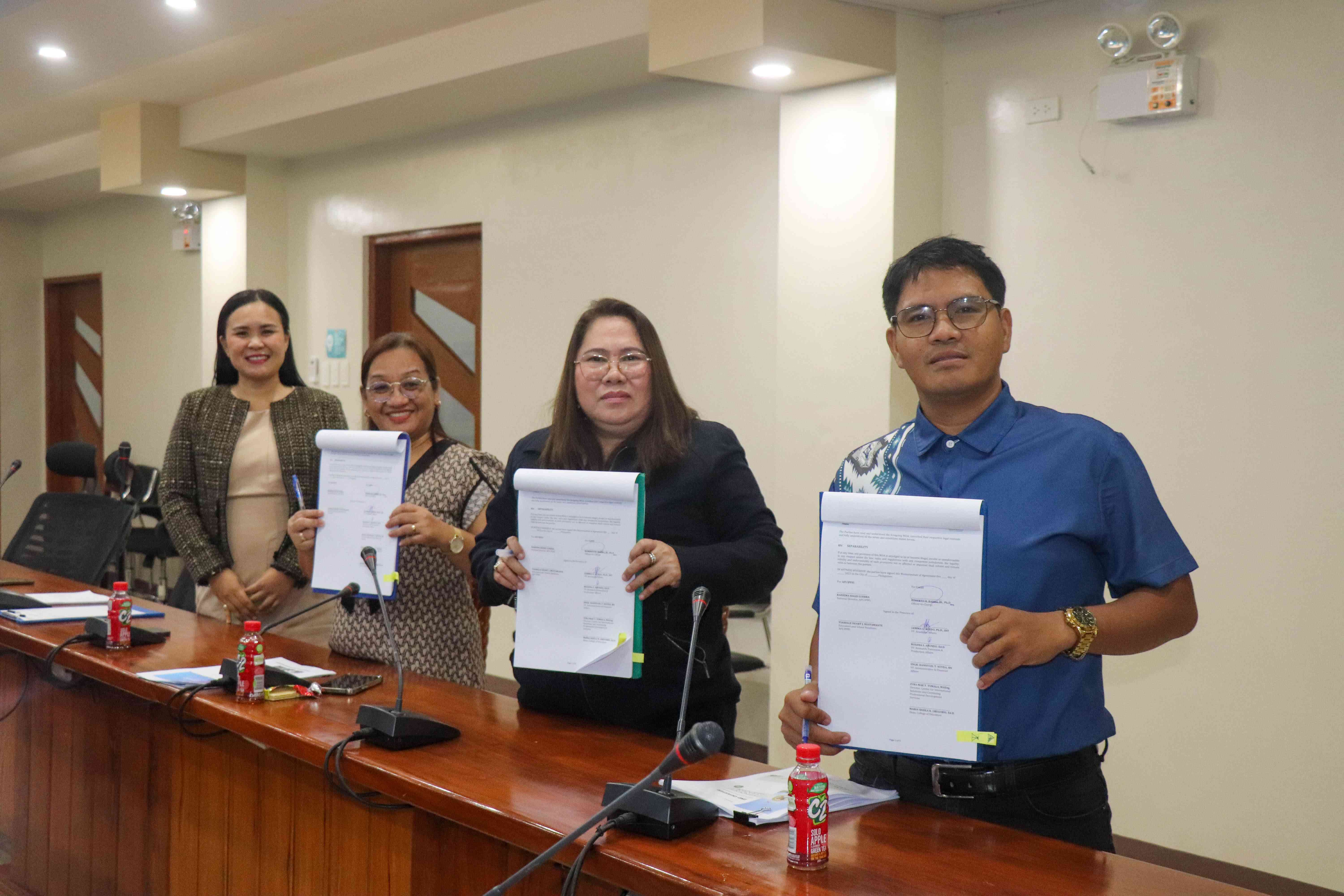
In a bold move to internationalize education in the province, Catanduanes State University (CatSU) officially signed a Memorandum of Agreement (MOA) with AFS Intercultural Programs Philippines Foundation, Inc. (AFS IPPFI) on July 14, 2025, establishing a long-term partnership for global citizenship education and intercultural learning. The signing, held at the CatSU Conference Room, formalized a five-year collaboration that aims to provide immersive educational experiences—both local and international—to CatSU students, educators, and school personnel. CatSU Officer-in-Charge Dr. Roberto B. Barba Jr. led the University team, while AFS IPPFI was represented by National Director Rahiema Bagis Guerra. Under the MOA, CatSU and AFS will collaborate in offering student and teacher exchanges, volunteer and internship opportunities abroad, and capacity-building programs focused on intercultural competence, leadership, and 21st-century skills. These initiatives will be reinforced by the formation of AFS School Clubs and the recognition of AFS participation as part of the university’s co-curricular and academic development offerings. University officials including Dr. Gemma G. Acedo (VP for Academic Affairs), Dr. Rosana S. Abundo (VP for Research, Extension, and Production Affairs), and Dir. Zyra Mae T. Tumala (Director, Center for International Relations and CPD) witnessed the signing, reinforcing the university’s strong institutional support. The agreement outlines specific roles and strategies for both parties. CatSU will facilitate student and faculty participation, provide necessary institutional support, and recognize AFS programs as part of its academic ecosystem. Meanwhile, AFS will offer training, technical support, orientation, and program management to ensure smooth implementation and student welfare. Also central to the program are local activities such as intercultural learning workshops, forums, and global awareness campaigns, which will be conducted on campus. Schools under CatSU’s network are also expected to play an active role, with provisions for hosting foreign exchange students and incorporating global learning into school culture. The MOA, valid for five years, includes provisions for program evaluation, renewal, and possible expansion depending on the outcomes of mid-term reviews. Both parties also pledged to uphold the Data Privacy Act and maintain transparency and fairness in program implementation.
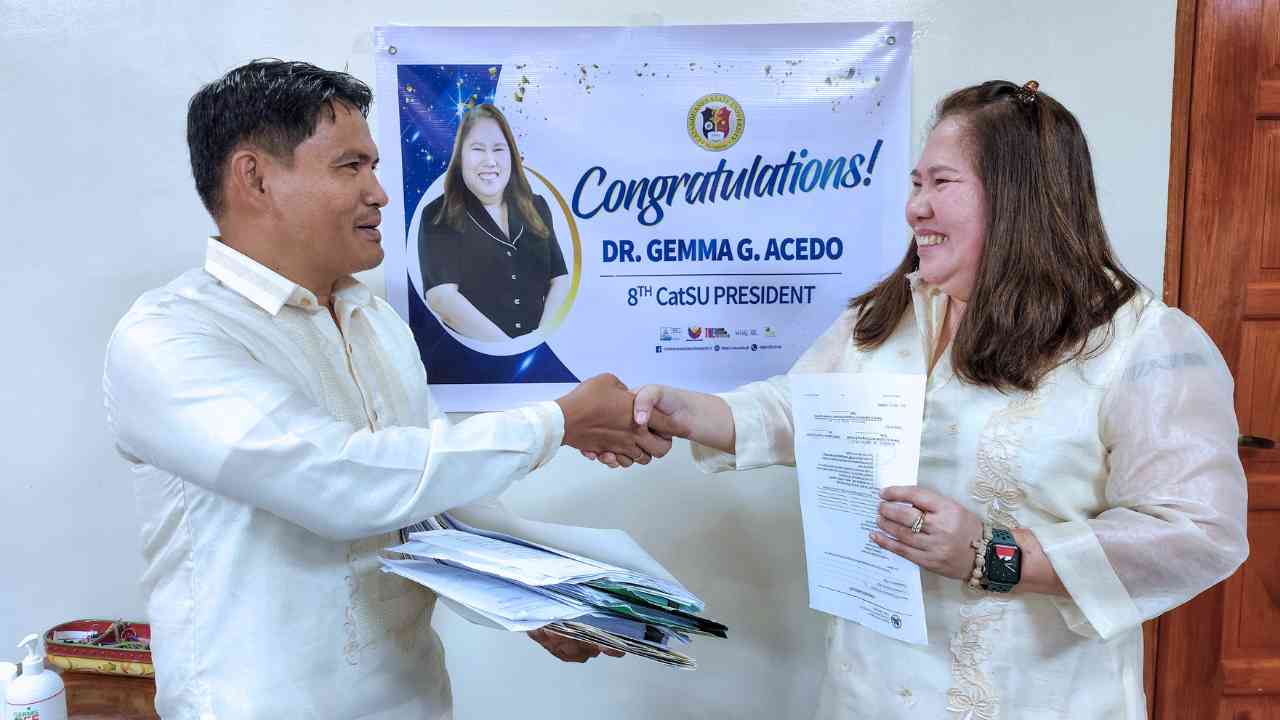
A quiet yet meaningful handover unfolded at Catanduanes State University as former OIC President Roberto B. Barba Jr. officially turned over documents and leadership reins to the newly elected and sworn-in 8th University President, Dr. Gemma G. Acedo. “It’s been 6 months and 10 days of deeply rewarding service,” said Barba, who led the university during its interim phase. “It is a great new day for CatSU. Congratulations to our new president. Let us all show our full support as the university steps into another milestone.” Elected and confirmed by the CatSU Board of Regents on June 17, Dr. Acedo, who previously served as Vice President for Academic Affairs, began her first morning with faith—a Thanksgiving Mass. “Gratitude is where everything begins,” she said. “This is not a personal achievement but a collective one.” In her first words as President, Acedo emphasized continuity and commitment: “I will uphold the core values of CatSU. I believe in a culture of research as a driver for institutional and societal growth. Our research should speak to the needs of the community.” She promised to listen, especially to the students. “Your voices will always be heard. Academic freedom and inclusivity are not mere principles—they are our way forward.” As CatSU continues to maintain its global ranking and push academic frontiers, Dr. Acedo assured the community that the university will remain rooted in inclusivity, integrity, and excellence.

The Commission on Higher Education (CHED) has officially released CMO No. 6, Series of 2025, establishing the detailed application process for higher education institutions (HEIs) seeking authority to offer Transnational Higher Education (TNHE) programs in partnership with foreign universities. The memorandum, issued pursuant to Republic Act No. 11448 or the Transnational Higher Education Act, aims to streamline the accreditation and regulatory process for local HEIs planning to offer dual degrees, franchised programs, or set up branch campuses in collaboration with Foreign Higher Education Institutions (FHEIs). CHED stated that the issuance of CMO No. 6 is part of its broader push to internationalize Philippine higher education by encouraging cross-border academic cooperation while maintaining rigorous quality standards. “This policy ensures that HEIs entering into international academic collaborations follow a transparent, merit-based, and quality-assured process,” the Commission noted in its official statement. Under the new guidelines, HEIs must submit a comprehensive application package, including proof of legal capacity, detailed program proposals, agreements with foreign partners, and internal mechanisms for quality assurance and academic integrity. The applications will undergo evaluation by CHED’s technical panels before final approval by the Commission en banc. CHED emphasized that only institutions granted official authority under this CMO may legally operate TNHE programs in the Philippines. The Commission also reminded all HEIs to avoid unauthorized arrangements, citing past enforcement actions involving institutions operating without proper approval. The release of CMO No. 6 comes amid a growing number of Philippine universities exploring academic partnerships abroad, as part of efforts to boost global competitiveness and expand student access to international credentials. The Commission said the policy is designed to align with global standards while protecting Filipino students from substandard or illegitimate educational offerings. CHED encouraged HEIs to carefully review the full guidelines and consult their respective CHED Regional Offices for technical assistance.
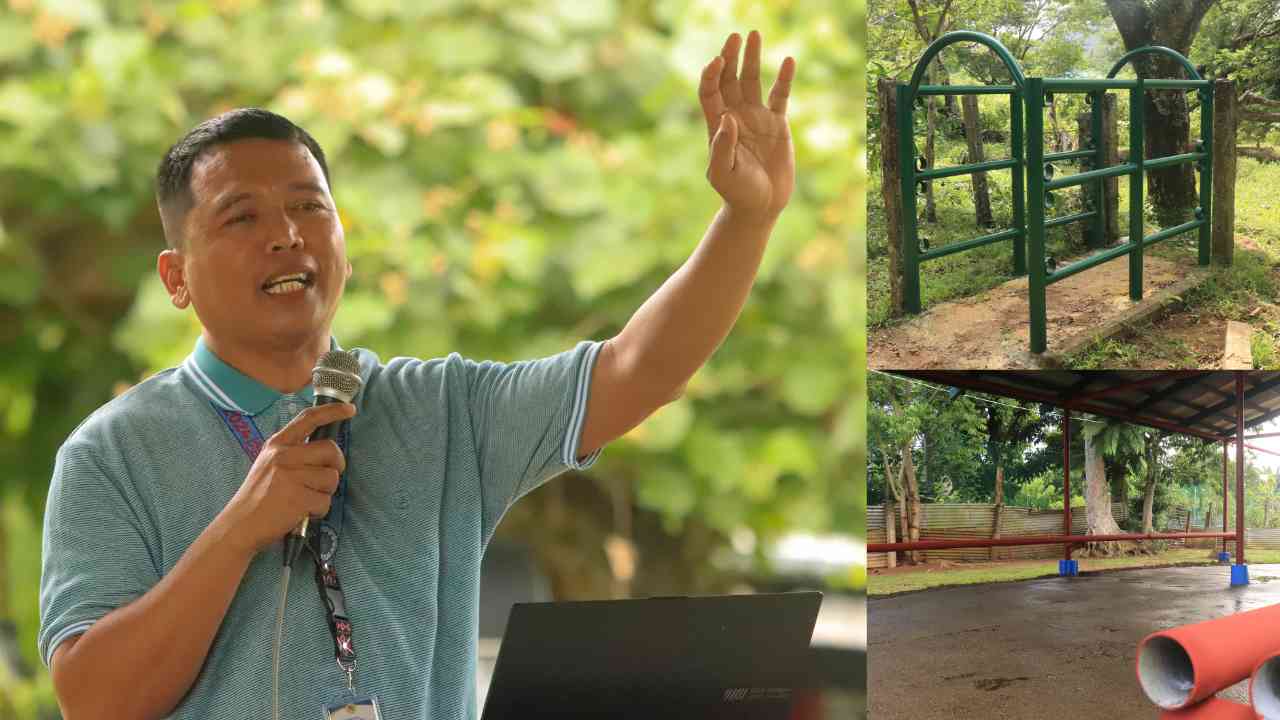
A new Goat and Sheep Shed was opened at the Catanduanes State University (CatSU) farm on June 26, marking a concrete step forward in livestock education and local food production. The project, led by the College of Agriculture and Fisheries (CAF), aims to serve both as a livestock shelter and a practical learning facility for agriculture students. CAF Dean Dr. Michael Owen P. Malijan said the shed was built through the combined efforts of faculty, farm staff, and workers. He highlighted its dual function—improving animal housing while giving students hands-on training in livestock management. “This is a product of teamwork. It shows what we can achieve when we work with a clear goal,” Malijan said during the ribbon-cutting. Dr. Ma. Shiela Gregorio, Dean of the College of Education, called the farmworkers the “unsung heroes” behind the project and praised their role in campus-wide development. A message of support from governor-elect Dr. Patrick Alain T. Azanza, delivered by Ms. Aileen Llandelar, affirmed continued backing for CAF projects. Llandelar also announced that the university has been officially recognized as a Learning Site for Agriculture by the Department of Agriculture–Agricultural Training Institute (DA-ATI). This comes with a grant for additional livestock and agri-based initiatives aimed at expanding local food systems. Mr. Eddie Millon, representing the CAF faculty and staff, closed the event by thanking all stakeholders and emphasizing the importance of cross-college cooperation in developing sustainable agriculture programs. The shed is expected to enhance the university’s livestock research and training capacity, while also contributing to broader provincial food security goals.
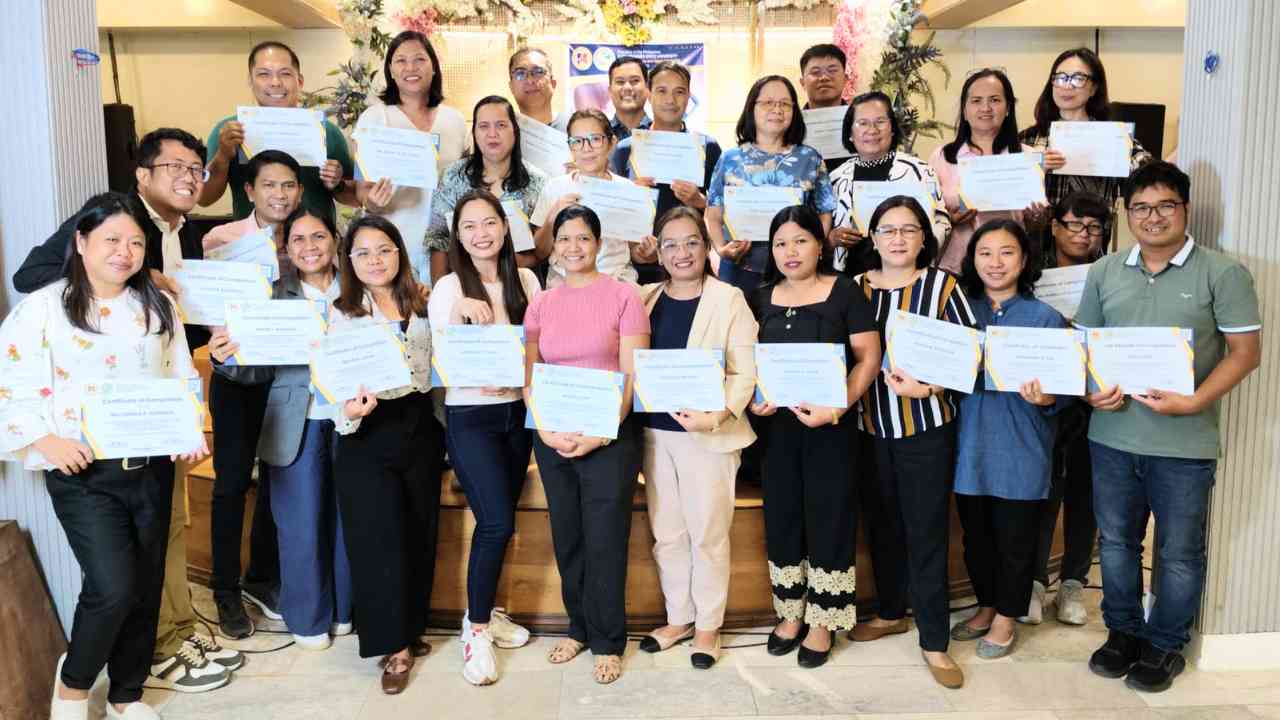
Flexible learning just got a major upgrade. Twenty-one graduate school faculty members have successfully completed a rigorous three-day echo training on Course Design for Open and Distance e-Learning (CD4ODeL), positioning the university to deliver smarter, more accessible instruction for graduate students. Held from June 9 to 11, 2025 at Twin Rock in Igang, Virac, the training was more than just an academic workshop—it was a blueprint for how graduate education can evolve to meet the demands of modern learners. “This is how we transform our modules,” said Dr. Gemma G. Acedo, Vice President for Academic Affairs, during her keynote address. “Our faculty and academic leaders are not just participating—they are leading the shift toward improved, future-ready instruction.” The training was initiated by the Graduate School, led by Dean Arthur I. Tabirara, in partnership with the Open University headed by Dr. Medie M. Lopez. It served as the university’s echo of the national CD4ODeL program facilitated earlier this year by the University of the Philippines Open University (UPOU). Before the training kicked off, the Research Committee conducted a university-wide survey to gauge the learning preferences of graduate students and faculty. The results, presented by Dr. Jose Tria, showed that over 50% preferred a blended learning setup—insight that directly shaped the course design and workshop outcomes. Throughout the workshop, participants engaged in five targeted sessions, all facilitated by university faculty members: Dr. Medie M. Lopez on digital learning frameworks and horizontal syllabus development Asst. Prof. Romeleen S. Go-Vela on crafting course and study guides Instructor Ferdinand M. Brizo on curating online resources Assoc. Prof. Moreno D. Tabios, Jr. on designing interactive learning activities Dr. Rosana S. Abundo on strategies for online assessment Faculty members were required to produce complete sets of course design outputs—aligned with outcome-based education and online pedagogy—which were reviewed during the program’s closing. Beyond technical skills, the training also signaled the university’s serious commitment to educational innovation. By investing in its own faculty, the institution is laying the groundwork for a more inclusive and adaptive academic environment—particularly crucial in island provinces where flexibility in education can bridge real-world access gaps.
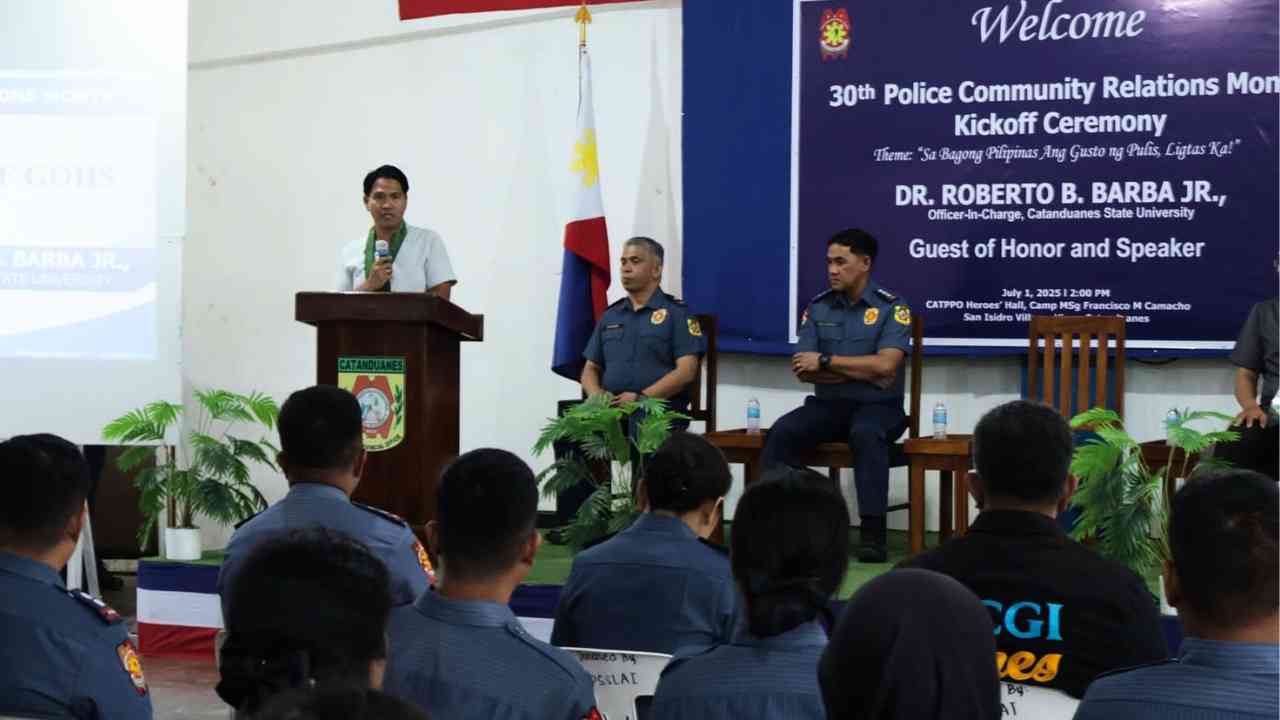
“Let’s talk about trust.” That was the pointed opening of Catanduanes State University OIC President Dr. Roberto B. Barba Jr., who served as Guest of Honor and Speaker during the 30th Police Community Relations (PCR) Month Kickoff Ceremony held July 1 at Camp Francisco Camacho in Virac. Speaking before members of the Catanduanes Police Provincial Office, community leaders, and guests, Dr. Barba wasted no time cutting to the core of this year’s theme—“Sa Bagong Pilipinas, Ang Gusto ng Pulis, Ligtas Ka!”—by framing safety not just as a police duty, but as a shared civic pact. “It’s not just about patrol cars or arrest reports,” he said. “It’s about what happens when law enforcement and the public meet—not in confrontation, but in cooperation.” Context is the Catalyst Barba underscored the uniqueness of island life in Catanduanes, where communities are tightly knit, and both good deeds and missteps are amplified. “In a place like this,” he said, “safety means more than low crime numbers. It’s seeing your kid ride a bike down the barangay road without you panicking. It’s the cop who fixes the sound system during the barangay fiesta.” Citing Data, Pushing Dialogue Backed by recent statistics, Barba noted that crime in Catanduanes declined slightly in 2024—from 381 to 372 reported cases. Rape dropped by 32%, and robbery by 52%. While theft and motorcycle carnapping saw a minor uptick, the quick response of local police and barangay units kept them in check. “These aren’t just numbers,” he emphasized. “They’re stories of families not broken, lives not lost—and communities choosing vigilance over violence.” But Barba said the real challenge lies in restoring public trust, which, unlike crime stats, can’t be easily measured. “You might not remember the crime rate, but you’ll remember how the police treated your cousin. Or whether they walked a student home after dark.” From Enforcement to Engagement He reminded the audience that building a “Bagong Pilipinas” isn’t just about reforming institutions—it’s about reimagining relationships. “Policing is a thankless job. When it’s done right, no one notices. When there’s one mistake, no one forgets,” he said. “That’s why community relations matter. Because safety isn’t just enforced—it’s co-created.” Barba called on all sectors to play a role—from educators teaching civic responsibility, to parents modeling respect for the law, to vendors and drivers who often notice things first. “You are the first line of intelligence,” he told the crowd. Calling Out Reality, Not Just Rhetoric Acknowledging ongoing concerns about abuse, rogue elements, and public hesitation, Barba called for “real-time accountability, not just real-time policing.” “Let’s not solve these issues by standing on opposite ends, shouting,” he said. “Let’s sit down—over coffee, during feeding programs, town halls—and ask: ‘Ano bang tunay na nangyayari? Paano tayo tutulong?’” Higher Education’s Role As head of the island’s lone state university, Barba took pride in CatSU’s graduates—many of whom now serve in the PNP and justice sector—even though the university doesn’t offer Criminology. “We produce graduates who don’t just know the law—but who live it, with compassion, intelligence, and integrity.” He also pledged continued university support for initiatives that bridge campuses with community peace-building efforts. A Closing Challenge Ending his message with a challenge to both police and public, Barba asked: “Can we build peace not just through presence, but through partnership?” And with that, he redefined the day’s celebration—not just as a ceremonial kickoff, but as a shared commitment to safety, trust, and the work of building a country where both the public and the police want the same thing: a safe, dignified life for every Filipino.
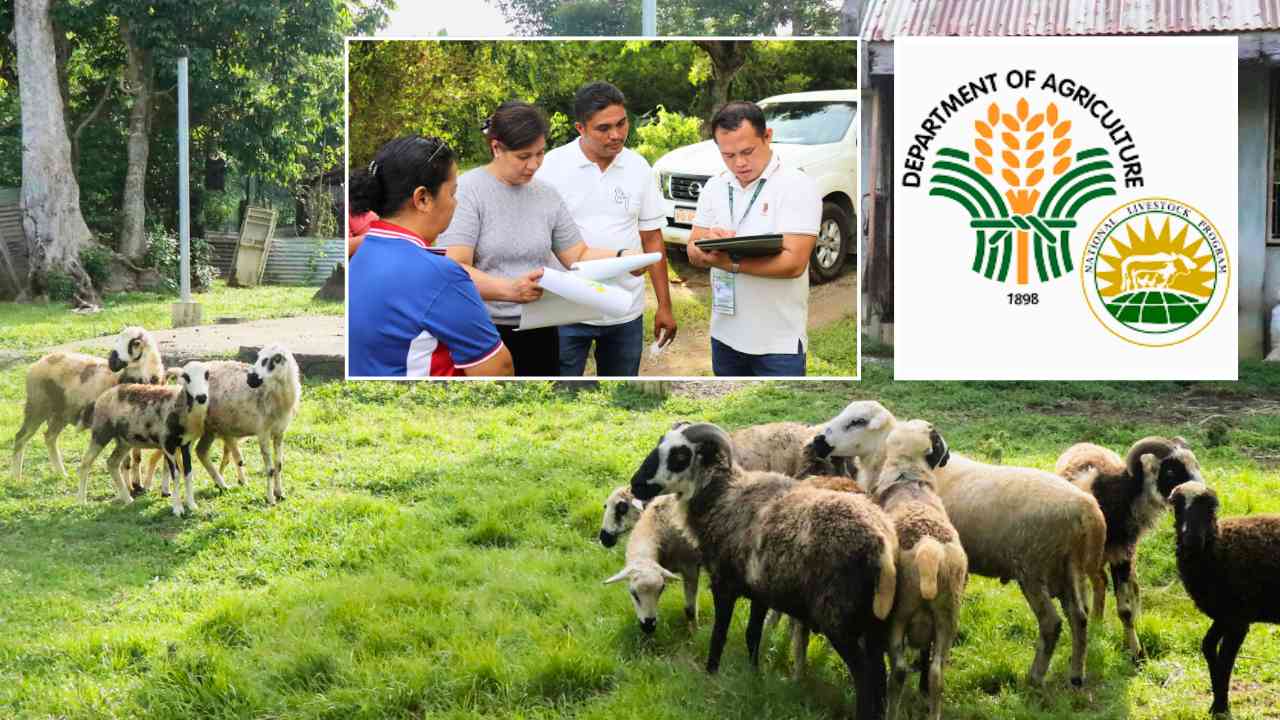
The Department of Agriculture – Regional Field Office 5 (DA-RFO 5), through its validation team led by Regional Livestock and Poultry Program Coordinator Marianito A. Tesorero, conducted a site validation on June 18, 2025, at Catanduanes State University (CatSU) Main Campus for the proposed Livestock Economic Enterprise Development (LEED) Project. The team was formally welcomed by CatSU Officer-in-Charge Dr. Roberto B. Barba. The delegation included Maria Gracia E. Postigo, Farm Supervisor and APCO-Albay Technical Staff; Herbal De Leon, Farm Supervisor; and staff from the Regional Agricultural Engineering Division. After the inspection, Mr. Tesorero issued a summary of recommendations endorsing CatSU for the LEED Project, which covers livestock initiatives such as goat, honeybee, and layer chicken production, along with support for essential equipment including feed mills, incubators, and pelletizers. The endorsement was confirmed and signed by CatSU Farm Manager Eddie S. Millon, with support from Dr. John Joseph M. Camu, University Veterinarian; Aileen S. Llandelar, Project Coordinator; Planning Officer III Ar. Mae Lizza D. Bublo; and other university personnel who assisted during the visit. The team conducted a comprehensive inspection of the university’s livestock and poultry facilities. Another validation is scheduled at CatSU Panganiban Campus on June 19 to assess the proposed site for the swine production package under the LEED program.
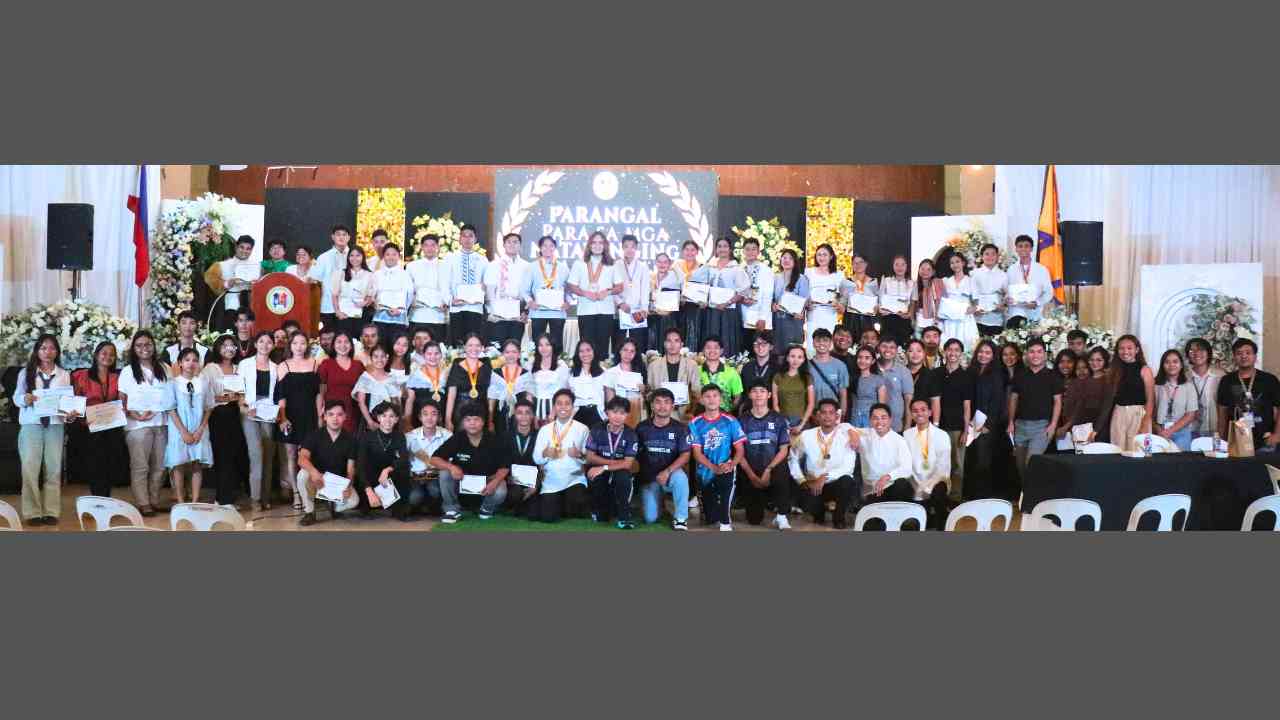
“You are more than your medals. You are hope made visible,” said Catanduanes State University (CatSU) Officer-in-Charge Dr. Roberto B. Barba, Jr. during the 2025 Parangal sa mga Natatanging Mag-aaral held on June 10 at the CatSU Auditorium. Addressing the university’s top-performing students, Dr. Barba emphasized that being outstanding goes beyond awards. “It’s about quiet consistency,” he said, urging the awardees to remain grounded in their values and purpose. He shared practical advice: “Success doesn’t always look like a gold medal. Take real breaks. Learn to really listen. Let kindness outlast competition. Serve, not just succeed.” Dr. Barba underscored CatSU’s deeper mission for its students: “Our vision for you goes beyond diplomas and awards. We want you to be change-makers, bridge-builders, listeners, and leaders.” The event also welcomed Virac Councilor-Elect Hon. Angelo Piolo Laynes as guest of honor, alongside Vice President for Academic Affairs Dr. Gemma G. Acedo and Registrar III Ms. Salvacion Murillo. In his message, Councilor-elect Laynes reminded students of the importance of character in their pursuits: “Kaalaman ang magdadala sa atin sa rurok ng tagumpay, pero integridad ang magtitiyak na mananatili tayong totoo sa ating pinanggalingan at layunin.” He concluded by sharing three guiding principles that shaped his own journey: “Stay grounded. Serve with heart. Embrace your failures. Every failure is a lesson, a redirection—sometimes even a protection.” Organized by the Office of Student Affairs and Development Services (OSADS), the event recognized graduating and non-graduating athletes with regional and national wins, members of the Center for Culture and Arts – Hablon Dawani, academic honorees including President’s Listers for AY 2023–2024 and 2024–2025, and winners in academic and non-academic fields. Kent Richmond D. Antonio from the College of Health Sciences was named this year’s Outstanding Student Leader, chosen from 22 nominees.
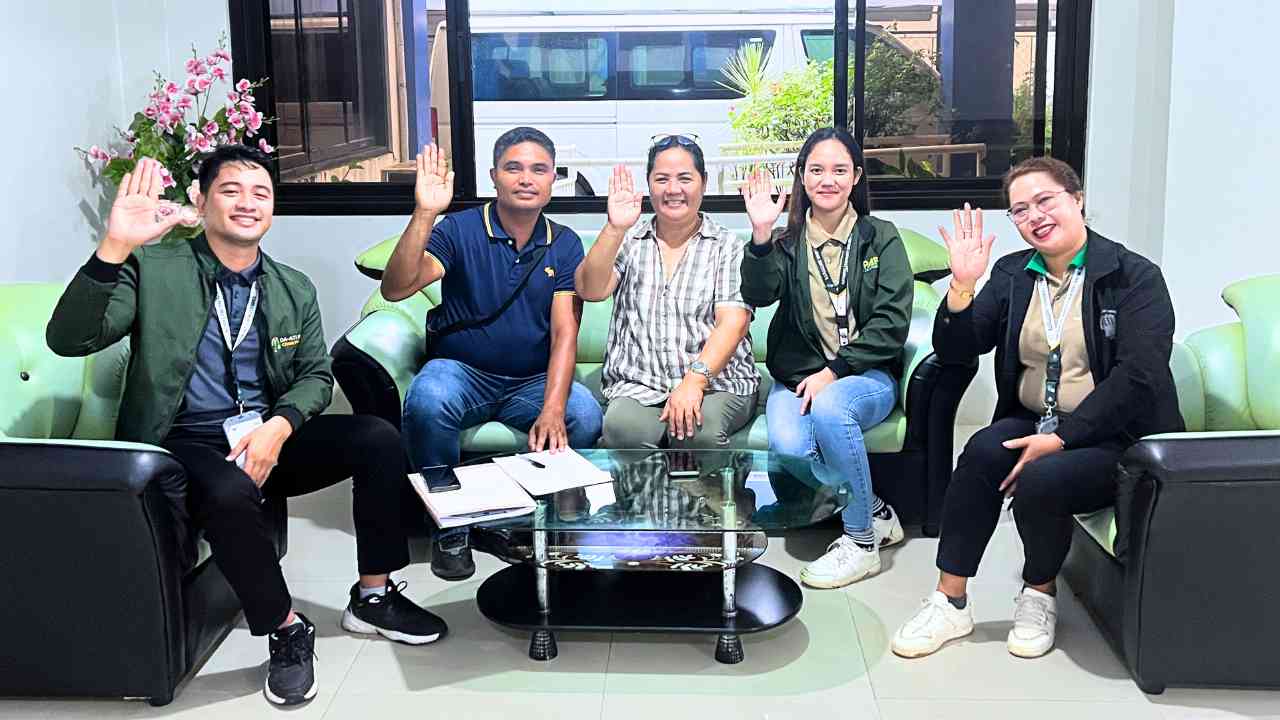
Despite heavy rains, Catanduanes State University (CatSU) successfully underwent evaluation on June 11, 2025, by the Department of Agriculture–Agricultural Training Institute (DA-ATI) Region V as it vies to become the second state university in the Bicol Region and the seventh Learning Site for Agriculture (LSA) in the province. The DA-ATI LSA validation team, composed of Training Specialist I and LSA focal person Alexander O. Vargas, Planning Officer II Nida H. Garcia, and technical staff, conducted the assessment to verify the university's compliance with LSA standards and guidelines. CatSU Officer-in-Charge Dr. Roberto B. Barba, Jr. and designated Farm Manager Eddie Millon welcomed the evaluators and highlighted the university’s readiness, citing its extensive agricultural land, diverse crops and livestock, advanced machinery, and expanding training facilities. The team inspected key areas including the College of Agriculture and Fisheries building with its poultry section, the Extension Building with its training hall, the solar farm, and CatSU’s main farm featuring crops like bitter gourd, eggplant, and pineapple. The DA-ATI team provided feedback and will endorse CatSU’s application to the ATI Central Office. Upon approval, CatSU will be formally certified and a Memorandum of Agreement ceremony will be held. LSAs are part of ATI’s initiative to promote practical, hands-on agricultural education by partnering with institutions and successful farms to demonstrate replicable farming technologies and practices.
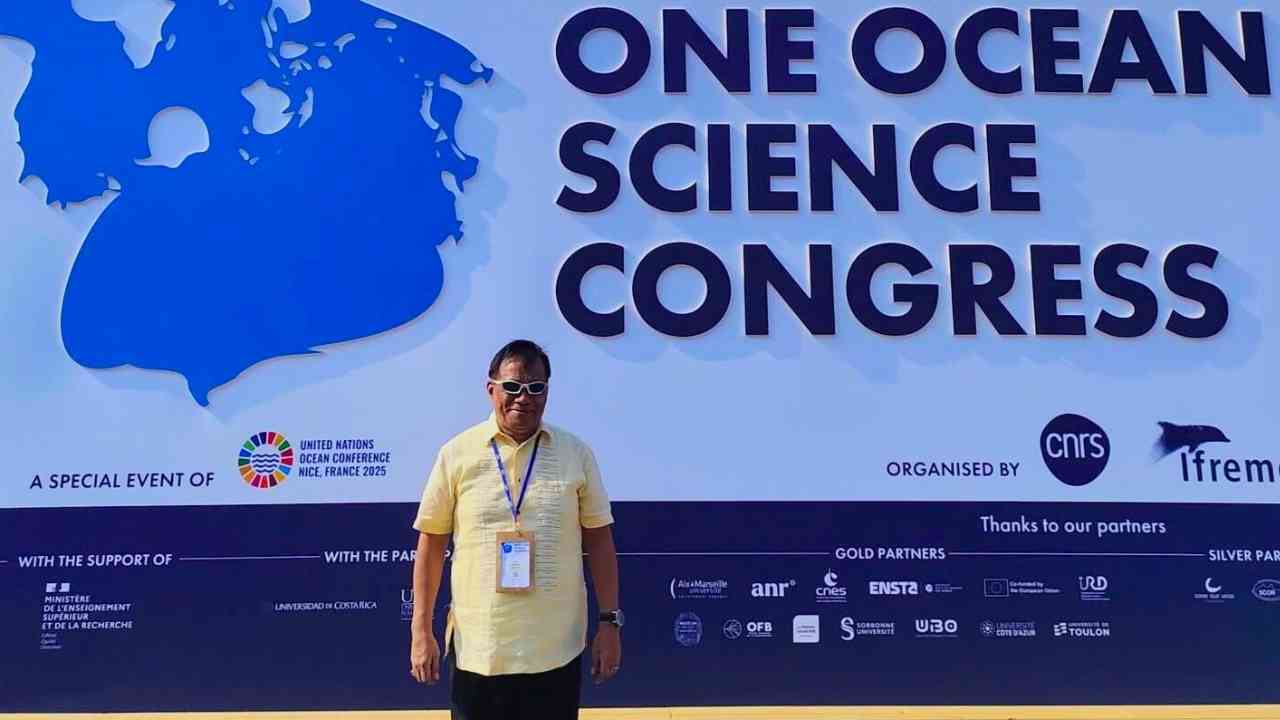
Dr. Jimmy T. Masagca, Professor VI at the Catanduanes State University College of Agriculture, was among the world scientists who gathered at the One Ocean Science (OOS) Congress held from June 3 to 6 in Nice, France. The congress, organized as a special event of the Third UN Ocean Conference (UNOC3), tackled urgent global concerns including the collapse of marine biodiversity, unsustainable fisheries, and the need for stronger science-based action in ocean governance. Masagca, a member of the IUCN Climate Crisis Commission and DA-BFAR’s Scientific Advisory Group, was one of only three Filipino scientists selected by the French Embassy and the French National Centre for Scientific Research (CNRS) to participate in the high-level event. The other delegates were Dr. Cha Amedo Repollo, Deputy Director of the UP Marine Science Institute, and Dr. Connie Ponce, a chemist from UP Visayas. “I am honored to be a Philippine delegate to the UN Ocean Conference Special Event – One Ocean Congress in Nice, France,” Masagca posted on Facebook. “Thank you to the French Embassy and CNRS for selecting me.” The CatSU professor attended sessions on the IUCN Green List for Protected and Conserved Areas, the impacts of non-selective fisheries, the BBNJ (Biodiversity Beyond National Jurisdiction) Agreement and the Great Blue Wall, and the role of science in supporting BBNJ implementation. “Thank you, French Embassy, for sponsoring my travel to Nice, France,” he added. “The benefits are so immense. I have met and expanded connectivity for collaboration—on coastal restoration.” Masagca also leads the CatSU–Bicol University–Aklan State University Tri-University Consortium, which focuses on coastal and marine research in island regions.




